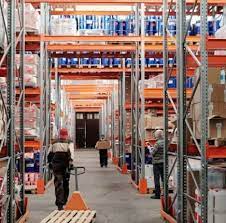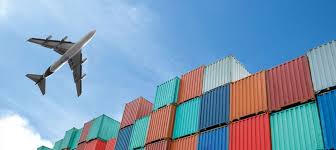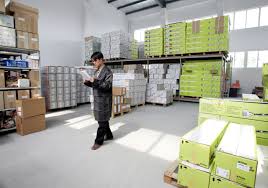Import export inspection is a crucial aspect of international trade, ensuring that products meet the required standards and regulations. In ...
Import export inspection is a crucial aspect of international trade, ensuring that products meet the required standards and regulations. In Saudi Arabia, efforts are being made to streamline this process in order to facilitate smoother and more efficient import and export operations. This article will explore the current state of import export inspection in Saudi Arabia and the initiatives in place to improve and streamline this important aspect of international trade.
Streamlining import export inspection in Saudi Arabia involves implementing simplified and standardized procedures for inspecting goods entering or leaving the country. This may include establishing a centralized electronic system for submitting inspection requests, reducing the number of physical inspections through risk-based assessment, and adopting international standards to ensure efficiency and transparency. Additionally, creating a single window for all import and export-related procedures can further streamline the process and facilitate trade. Such measures can help improve the overall ease of doing business in Saudi Arabia and attract more foreign investment.
The Importance of Import Export Inspection in Saudi Arabia

The importance of import-export inspection in Saudi Arabia lies in ensuring the safety, quality, and compliance of goods being traded in and out of the country. Import-export inspection helps to protect human health, environment, and economy by preventing the entry of substandard or hazardous products. It also helps in regulating trade by enforcing laws and regulations related to imports and exports. Additionally, import-export inspection can facilitate international trade by building trust among trading partners and promoting the reputation of Saudi Arabian products in the global market. In summary, import-export inspection plays a crucial role in safeguarding public interests and promoting fair and sustainable trade.
Ensuring Quality and Compliance: Import Export Inspection in Saudi Arabia

In Saudi Arabia, import and export inspection is carried out to ensure that products entering or leaving the country meet the necessary quality and compliance standards. This process involves thorough inspections of goods at ports of entry and exit, as well as documentation checks to ensure that all necessary import and export requirements are met. The Kingdom of Saudi Arabia has specific regulations and standards in place for various products, such as food, pharmaceuticals, textiles, and electrical goods. Importers and exporters are required to comply with these regulations, and failure to do so can result in fines, delays, or even the rejection of the goods. The Saudi Food and Drug Authority (SFDA) and the Saudi Standards, Metrology, and Quality Organization (SASO) are the main regulatory bodies responsible for ensuring the quality and compliance of imported and exported goods. These organizations work to protect consumers and the environment by ensuring that products meet the necessary health, safety, and environmental standards. Importers and exporters should be aware of the specific requirements for their products and work closely with their suppliers, freight forwarders, and customs brokers to ensure that all necessary inspections and documentation are completed accurately and on time. Through careful attention to quality and compliance standards, businesses can ensure the smooth import and export of goods in Saudi Arabia.
Navigating the Regulatory Landscape: Import Export Inspection in Saudi Arabia

Navigating the Regulatory Landscape: Import Export Inspection in Saudi Arabia involves understanding and complying with the various regulations and requirements set forth by the Saudi Food and Drug Authority (SFDA) and other relevant government agencies. This includes obtaining the necessary import and export permits, ensuring products meet local standards and specifications, and undergoing inspections and testing as required. It is important for businesses to stay informed about any changes or updates to the regulatory landscape to avoid potential delays or non-compliance issues. Working with experienced import/export agents or consultants can also be beneficial in ensuring smooth navigation of these regulations.
Challenges and Opportunities in Import Export Inspection Saudi Arabia
Challenges in import export inspection in Saudi Arabia include varying regulatory requirements, complex customs procedures, and potential language barriers. Additionally, ensuring compliance with Saudi Arabian regulations and standards can be challenging for foreign companies. Opportunities in import export inspection in Saudi Arabia include the country's strategic location as a gateway to the Gulf region, its strong demand for imported goods, and ongoing efforts to streamline and digitize customs procedures. There is also potential for partnerships with local inspection and certification agencies to navigate the regulatory landscape more effectively.
Streamlining the Process: Import Export Inspection in Saudi Arabia
SABER Certification Now Available in Saudi Arabia
Streamlining the process of import-export inspection in Saudi Arabia involves implementing efficient and standardized procedures for inspecting goods entering and leaving the country. This may include establishing clear guidelines for document submission, conducting inspections, and handling any discrepancies or issues that arise during the inspection process. Additionally, leveraging technology and automation can help expedite the inspection process and ensure accuracy. By streamlining import-export inspections, Saudi Arabia can improve trade efficiency and facilitate smoother transactions for businesses involved in international trade.
The Role of Government Agencies in Import Export Inspection Saudi Arabia
SABER Certification Now Available in Saudi Arabia
The role of government agencies in import-export inspection in Saudi Arabia is crucial for ensuring the compliance of imported and exported goods with national and international standards and regulations. The Saudi Food and Drug Authority (SFDA) is responsible for regulating and inspecting imported and locally produced food, pharmaceuticals, and medical devices to ensure their safety and quality. The Saudi Standards, Metrology, and Quality Organization (SASO) is the national standardization body of Saudi Arabia and plays a vital role in inspecting and testing imported goods to ensure their compliance with Saudi standards and technical regulations. The Saudi Customs Authority is responsible for customs clearance and inspection of imported goods at ports and entry points to prevent the entry of counterfeit or prohibited items into the country. Additionally, the Ministry of Commerce and Investment oversees the import-export sector, including licensing, registration, and inspection of importers and exporters to ensure compliance with trade regulations. These government agencies work together to enforce import-export inspection laws and regulations, safeguard public health and safety, and promote fair trade practices in Saudi Arabia.
Best Practices for Import Export Inspection in Saudi Arabia
Some best practices for import export inspection in Saudi Arabia include ensuring compliance with the country's import and export regulations, including obtaining the necessary import/export licenses and permits. It is also important to ensure that all goods being imported or exported meet the relevant product standards and specifications set by the Saudi Arabian Standards Organization (SASO). Additionally, it is important to thoroughly document all import and export transactions and maintain accurate records in case of an inspection by the Saudi Customs authorities. Finally, it is important to stay informed of any changes to import/export regulations and requirements in Saudi Arabia to ensure ongoing compliance.
